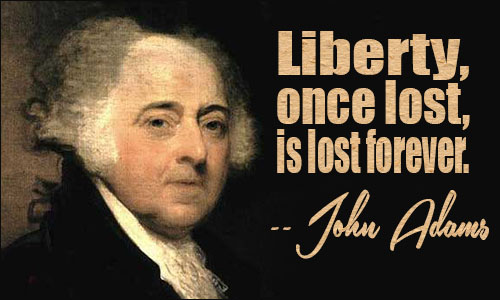Our nation's point man in the fight against unlawful Border Patrol activity in the nation's interior, Terry Bressi of CheckPointUSA.org, recently blogged about my civil suit against two Border Patrol agents. He takes on the government's claim that the requirement for brevity, absent consent or probable cause, is not clearly established. The government's argument hinges on the fact that our nation's courts chose to merely use the word "brief" to limit these interior checkpoint encounters, and declined to numerically spell out the term so that it might be measured with a stopwatch. The courts have, in fact, explicitly refused to provide a time standard, which makes sense in a situation where facts and circumstances are as different as the individuals driving through the checkpoints. It would be strange, however, if the courts' diction decision were meant to provide immunity to government agents, being that those same courts have also stated that brevity would be the principal protection of Fourth Amendment rights during these exception-to-the-Fourth-Amendment's-individual-suspicion-standard checkpoint intrusions.
Terry Bressi appears to believe, as it would appear our country's courts also have, that public servants can, and should be expected to understand what a requirement for brevity means without having it spelled out on a time piece. The Fifth Circuit Court of Appeals now has an important decision to make. If they continue with court precedent to not provide a stopwatch time limit to these checkpoints, then they must expect our public servants to understand terms like "brief" and "reasonably necessary to determine immigration status," and the court must consider multiple court rulings using those terms as equating to fair warning and clearly established law. If they do not, then the "principal protection" of our rights at these checkpoints amounts to absolutely no protection at all - and these brief, limited, minimally intrusive stops envisioned as a limited exception to our Fourth Amendment rights, will be solidified as being far more intrusive and ironically even less limited than stops based on individualized suspicion of a crime.
It would be an Alice-in-Wonderland development if the court were to rule that 1) brevity is the principal protection of rights, but 2) they will not use a stopwatch to measure brevity, and 3) they can offer no protection of rights because no stopwatch measurement exists. Such a ruling would make no sense.
Fortunately, I am confident our public servants on the Fifth Circuit bench will get this decision right. I've reproduced Bressi's recent blog post below:
On March 18, 2010 Major Richard Rynearson, an active duty air force pilot, was illegally detained for over 34 minutes at an internal immigration checkpoint near Uvalde, Texas despite answering all immigration related questions and showing multiple forms of identification to Border Patrol agents. Agents who were far more interested in harassing Mr. Rynearson than verifying his immigration status. Instead of disciplining his subordinates for violating Border Patrol legal guidance, violating the law and violating Mr. Rynearson's rights, Chief Patrol Agent Robert Harris (depicted below) doubled down by writing a letter to Rynearson's command complaining about Rynearson actually exercising some of those rights Harris is responsible for protecting.
Rynearson appealed the lower court's decision to the 5th Circuit Court of Appeals on February 28, 2014 and was joined by the Texas Civil Rights Project which filed an Amicus Curai Brief in support of the appeal. In response, the 5th circuit not only agreed to review the case but also allow oral argument. The video appearing above contains the audio from that oral argument which was heard on September 2, 2014. Currently Rynearson awaits the appellate court's decision.
While the above represents a quick overview of the checkpoint incident and its aftermath, I wanted to bring special attention to the position of the Department of Justice (DOJ) regarding the case. DOJ attorney Steven Frank represented the Border Patrol agents during oral argument and as such Mr. Frank's position represents that of the Department of Justice and the Department of Homeland Security.
Frank argued that no clearly established rights had been violated because a thirty four minute detention absent consent or probable cause at an immigration checkpoint should be considered perfectly reasonable. When pressed on the matter by the three judge panel, Frank essentially claimed that the court should adopt the same standard for internal immigration checkpoints that had been adopted for cases involving the actual border or its functional equivalent. Cases where the courts had upheld detentions ranging between ten and twenty four hours. This despite the fact that the legal standard of review for cases involving the border or its functional equivalent is very different from that of cases involving immigration checkpoints inside the country.
Since the cases Frank cited to hadn't been referenced in any filings to date, the three judge panel ordered Frank to submit a 28J letter to the court within twenty four hours. That letter and Rynearson's response is available online here.
What's disturbing about all this is not only Frank's apparent cavalier disregard for the truth as pointed out by this article:
“The justified scope of the stop was immigration-related questions. Therefore, the permissible duration of the stop was the amount of time reasonably necessary for Agent Holt to ask a few questions about immigration status.” - U.S. V Machuca-Barrera
“If Machuca-Barrera had not consented to the requested search, Agent Holt would not have been able to extend the stop beyond its permissible duration. The mere fact that a person refuses to consent to search cannot be used as evidence in support of reasonable suspicion. See United States v. Hunnicutt, 135 F.3d 1345, 1350-51 (10th Cir. 1998) (noting that it "would make a mockery of the reasonable suspicion and probable cause requirements . . . if citizens' insistence that searches and seizures be conducted in conformity with constitutional norms could create the suspicion or cause that renders their consent unnecessary"); Karnes v. Skrutski, 62 F.3d 485, 495 (3d Cir. 1995) (holding that refusal to consent to search "cannot support a finding of reasonable suspicion"); see also United States v. Moreno, 233 F.3d 937, 941 (7th Cir. 2000) (collecting related cases). - U.S. V Machuca-Barrera
"The principal protection of Fourth Amendment rights at checkpoints lies in appropriate limitations on the scope of the stop." - U.S. v. Martinez-Fuerte
"Our prior cases have limited significantly the reach of this congressional authorization, requiring probable cause for any vehicle search in the interior & reasonable suspicion for inquiry stops by roving patrols. Our holding today, approving routine stops for brief questioning is confined to permanent checkpoints. We understand, of course, that neither longstanding congressional authorization nor widely prevailing practice justifies a constitutional violation" - U.S. v. Martinez-Fuerte
"...We have held that checkpoint searches are constitutional only if justified by consent or probable cause to search....& our holding today is limited to the type of stops described in this opinion. -'[A]ny further detention...must be based on consent or probable cause.' " United States v. Brignoni-Ponce, supra, at 882. None of the defendants in these cases argues that the stopping officers exceeded these limitations.” - U.S. v. Martinez-Fuerte
“The reasonableness of checkpoint stops, however, turns on factors such as the location & method of operation of the checkpoint, factors that are not susceptible to the distortion of hindsight, & therefore will be open to post-stop review notwithstanding [428 U.S. 543, 566] the absence of a warrant.” - U.S. v Martinez-Fuerte
“Because of the important governmental interest in preventing the illegal entry of aliens at the border, the minimal intrusion of a brief stop, & the absence of practical alternatives for policing the border, an officer, whose observations lead him reasonably to suspect that a particular vehicle may contain aliens who are illegally in the country, may stop the car briefly, question the driver & passengers about their citizenship & immigration status, & ask them to explain suspicious circumstances; but any further detention or search must be based on consent or probable cause.” - U.S. v Brignoni-Ponce
“The price of that effectiveness, however, is intrusion on individual interests protected by the Fourth Amendment. We have held that the intrusiveness of even these brief stops for purposes of questioning is sufficient to render them "seizures" under the Fourth Amendment. See Terry v. Ohio, 392 U.S., at 16 . For precisely that reason, the scope of seizures of the person on less than probable cause that Terry [461 U.S. 352, 365] permits is strictly circumscribed to limit the degree of intrusion they cause. Terry encounters must be brief; the suspect must not be moved or asked to move more than a short distance; physical searches are permitted only to the extent necessary to protect the police officers involved during the encounter; &, most importantly, the suspect must be free to leave after a short time & to decline to answer the questions put to him." - Kolender v. Lawson
“The Supreme Court has repeatedly held that refusal to answer law enforcement questions cannot form the basis of reasonable suspicion. See Florida v. Bostick, 501 U.S. 429, 437, 111 S.Ct. 2382, 115 L.Ed.2d 389 (1991) ("We have consistently held that a refusal to cooperate, without more, does not furnish the minimal level of objective justification needed for a detention or seizure.") (citing INS v. Delgado, 466 U.S. 210, 216-17, 104 S.Ct. 1758, 80 L.Ed.2d 247 (1984); Florida v. Royer, 460 U.S. 491, 498, 103 S.Ct. 1319, 75 L.Ed.2d 229 (1983) (plurality); Brown v. Texas, 443 U.S. 47, 52-53, 99 S.Ct. 2637, 61 L.Ed.2d 357 (1979)). Vague answers may sometimes be a polite way to sidestep impertinent questions." - U.S. v. Santos 403 F.3d 1120 (2005)And these are just a few quotes from cases that directly address the reasonable length of time that individuals can be detained absent consent or probable cause - be they at internal immigration checkpoints or walking down a public street. While there has been no hard and fast times defined by the courts on when a checkpoint detention becomes unreasonable, court case after court case have made it clear that detentions must be BRIEF in the absence of consent or probable cause and that refusal to cooperate or answer questions can't be used as a basis for reasonable suspicion let alone probable cause.
Frank's embarrassing and ethically questionable testimony to the 5th circuit court of appeals should stand as a stark reminder to all of us regarding just how little regard the DOJ and DHS has for the rule of law and individual rights when the law and those rights conflict with federal interests.
A few additional articles related to the appeal can be found at:
For previous Roadblock Revelations articles regarding this case, see:
- Stossel's 'Policing America' Followup Article
- Watch John Stossel's 'Policing America: Security vs. Liberty' Checkpoint Segment
- Uvalde, Texas Checkpoint Lawsuit Goes To Appeals
- Border Patrol Retaliating Against Americans At Work
- Additional Video from Uvalde, Texas Checkpoint Incident Released
- Border Patrol Harass Military Field Grade Officer At Internal Checkpoint







